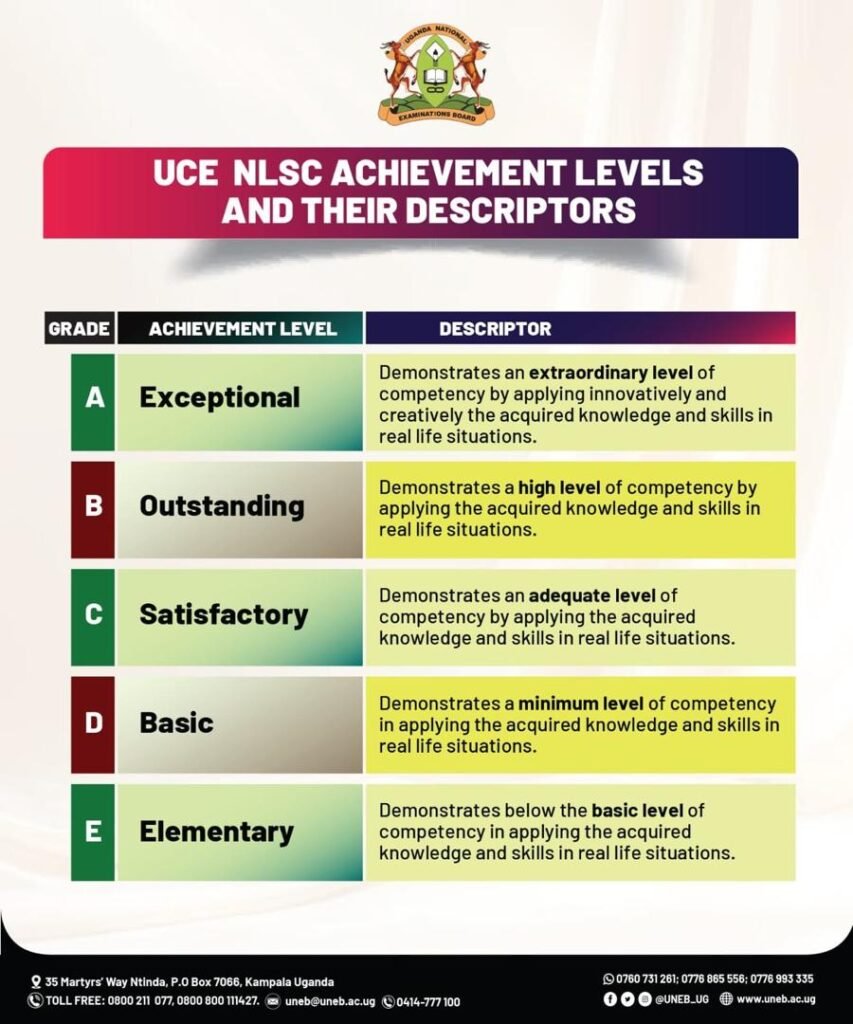UCE 2024 Results: The Most Confusing Yet? Here’s What’s Really Happening
At the start of this week, the Uganda National Examinations Board (UNEB) released the 2024 UCE results, and let’s just say—it’s been one of the most talked-about results in Uganda’s education history. Why? For the first time, both the old and new curriculum results were released together, and the grading system had many scratching their heads.
One phrase that has been trending across social media is:
“May you confuse your enemies like UCE 2024 results.”
That’s how baffling this year’s results have been. With a staggering 98% of students passing, many are asking, “What exactly is going on?” Some even joked:
“Every student got A, B, and C. What are they not telling us?”
“The whole country got result 1.”
But beyond the memes and social media reactions, this year’s results are a sign of a much bigger change in Uganda’s education system—which is why I am writing this, let’s break it down.
Understanding the UCE 2024 Grading System
One of the biggest sources of confusion is the new grading system under the UCE NLSC (New Lower Secondary Curriculum). Unlike before, where students received grades based on their scores, the new system classifies students into competence levels rather than traditional grades.
Here’s the new classification system:
A (80-100%) – Highly Competent
B (70-79%) – Competent
C (60-69%) – Fairly Competent
D (50-59%) – Developing Competence
E (0-49%) – Needs Support
What does this mean? Students aren’t necessarily failing in the traditional sense. Instead, they are classified based on their ability to apply knowledge rather than just memorize facts. Let’s try to put both curriculums on contrast.
Old Curriculum vs. New Curriculum: What’s Changed?
For years, Uganda’s education system has been heavily criticized for focusing too much on memorization and theoretical knowledge. Students were expected to cram historical dates, physics laws, and mathematical formulas—only to forget them after exams, and quite frankly, never use the most of the crammed words and theories.
The Old Curriculum:
Focused on knowledge acquisition (students memorized information but rarely applied it in real life).
Teachers did most of the explaining, while students mainly took notes.
Results were strictly based on scores, meaning students either passed or failed.
The New Curriculum:
Focuses on real-world application (students learn how to apply knowledge in practical situations).
Encourages independent research, with teachers acting as guides rather than the sole source of knowledge.
Uses competence-based classification rather than rigid grading.
For example, instead of just learning Newton’s Laws of Motion, students must now demonstrate how they apply in everyday situations—like designing a wheelchair ramp (more on this later!).
Project Work: A Game Changer in Ugandan Education
Another major change is the introduction of Project Work, where students identify real-life problems and come up with solutions based on their subjects. This approach ensures students develop critical thinking skills rather than just regurgitating textbook content.
How Projects Work:
Identifying a problem: Students recognize a real-world issue, for example, “How can a student using a wheelchair access a school building with stairs?”
Applying subject knowledge: They determine which subjects can help solve the problem, in this case, Physics – inclined planes, Mathematics – calculating slopes, Engineering – designing ramps.
Research & Proposal: Students then propose a solution and work on it under the supervision of their teachers.
Implementation & Evaluation: The project thus reviewed and assessed based on practical application rather than just theoretical understanding.
This encourages students to think beyond the classroom and develop problem-solving skills, creativity, and innovation—all crucial for Uganda’s future workforce.
How the New Curriculum Will Change Schools
With these changes, Ugandan schools will need to adapt fast, or they risk being left behind. Here’s what’s coming:
Co-curricular activities will become essential. Schools will start focusing more on sports, music, drama, and technology, not just academics.
Competitions will evolve. Instead of only quizzes and debates, we’ll see more innovation challenges, science fairs, and tech competitions. Some of this has already been implemented with the rise of STEM initiatives in schools as well as robotics fairs. – Coding Bootcamps in Schools
Vocational training will gain more respect. Since the new curriculum is skill-oriented, parents and schools will embrace crafts, entrepreneurship, and technical education as valuable career paths instead of the previous bias on these initiatives where parents and students themselves saw it as a form of “branching” for those not so interested in school. Now, under the new curriculum, every student is required to take on a vocational skill.
Parental expectations will also change. Parents will need to stop obsessing over straight-A report cards and instead focus on whether their child is developing valuable life skills, simply because report cards no longer come with numeric grading the likes of 90% or bellow, but rather genera classifications of A, B, C, etc.
What Happens After O-Level? (Senior 5 & Beyond)
One big question on people’s minds is how these changes will affect A-Level subject choices. Here’s what students can expect:
Students scoring A or B in core subjects will qualify for science or arts combinations at A-Level.
Those with C or D can still proceed but with limited subject choices.
Students mostly scoring D or E may be advised to consider vocational education or technical training.
New A-Level Subject Trends:
Science Stream: Physics, Chemistry, Biology, Mathematics.
Arts Stream: History, Economics, Geography, Literature.
Emerging Subjects: Entrepreneurship, Art, Computer Studies.
Contemporary Studies: A new subject replacing General Paper, focusing on ICT, financial literacy, and climate change.
What’s Next for Uganda’s Education System?
The UCE 2024 results may have been confusing, but they signal adjustments and changes in Uganda’s education space. The new curriculum is preparing students for the real world by focusing on competence, skills, and problem-solving rather than just exam scores, according to the Ministry of Education at least.
So, as Ugandans continue to joke about “confusing your enemies like UCE 2024 results,” one thing is clear: the future of education in Uganda is evolving, and those who adapt will perhaps face better odds post-education.
UNEB UCE Results 2024 Grading System Explained




